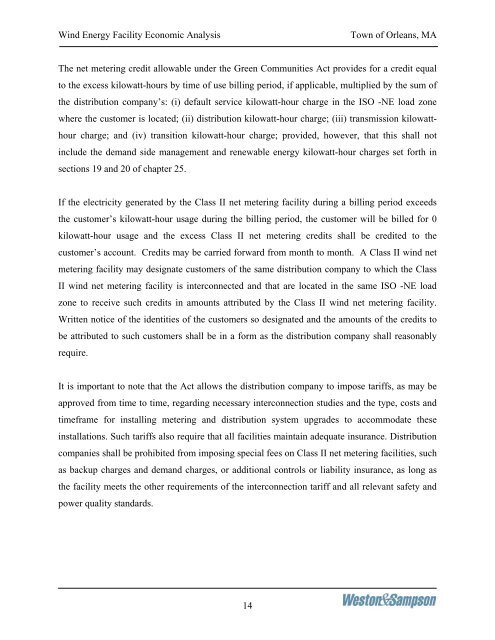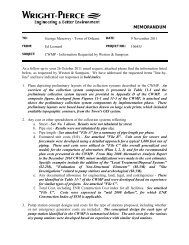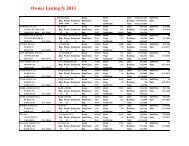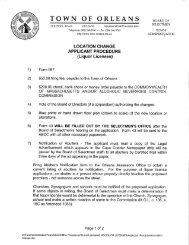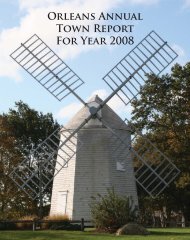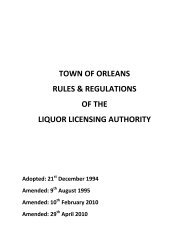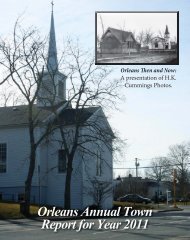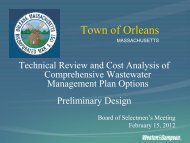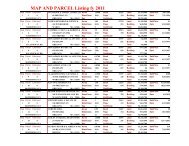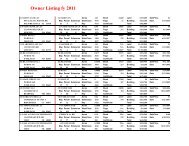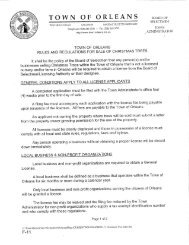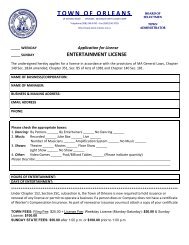Wind Energy Feasibility Study - Town Of Orleans
Wind Energy Feasibility Study - Town Of Orleans
Wind Energy Feasibility Study - Town Of Orleans
Create successful ePaper yourself
Turn your PDF publications into a flip-book with our unique Google optimized e-Paper software.
<strong>Wind</strong> <strong>Energy</strong> Facility Economic Analysis<strong>Town</strong> of <strong>Orleans</strong>, MAThe net metering credit allowable under the Green Communities Act provides for a credit equalto the excess kilowatt-hours by time of use billing period, if applicable, multiplied by the sum ofthe distribution company’s: (i) default service kilowatt-hour charge in the ISO -NE load zonewhere the customer is located; (ii) distribution kilowatt-hour charge; (iii) transmission kilowatthourcharge; and (iv) transition kilowatt-hour charge; provided, however, that this shall notinclude the demand side management and renewable energy kilowatt-hour charges set forth insections 19 and 20 of chapter 25.If the electricity generated by the Class II net metering facility during a billing period exceedsthe customer’s kilowatt-hour usage during the billing period, the customer will be billed for 0kilowatt-hour usage and the excess Class II net metering credits shall be credited to thecustomer’s account. Credits may be carried forward from month to month. A Class II wind netmetering facility may designate customers of the same distribution company to which the ClassII wind net metering facility is interconnected and that are located in the same ISO -NE loadzone to receive such credits in amounts attributed by the Class II wind net metering facility.Written notice of the identities of the customers so designated and the amounts of the credits tobe attributed to such customers shall be in a form as the distribution company shall reasonablyrequire.It is important to note that the Act allows the distribution company to impose tariffs, as may beapproved from time to time, regarding necessary interconnection studies and the type, costs andtimeframe for installing metering and distribution system upgrades to accommodate theseinstallations. Such tariffs also require that all facilities maintain adequate insurance. Distributioncompanies shall be prohibited from imposing special fees on Class II net metering facilities, suchas backup charges and demand charges, or additional controls or liability insurance, as long asthe facility meets the other requirements of the interconnection tariff and all relevant safety andpower quality standards.14


